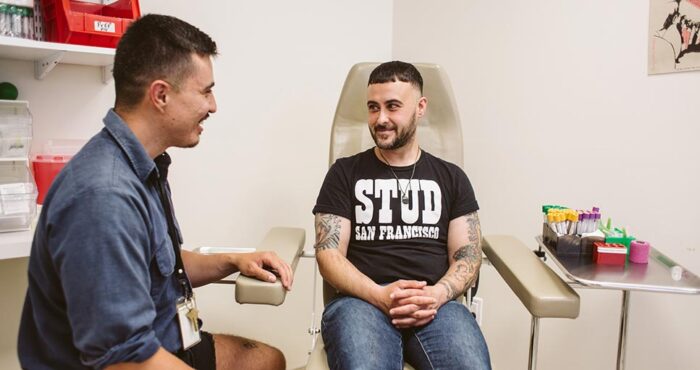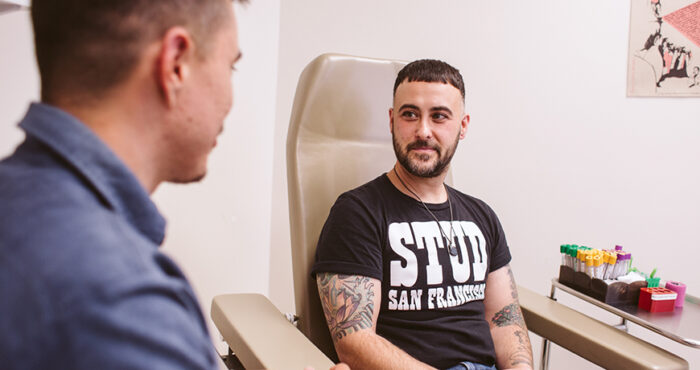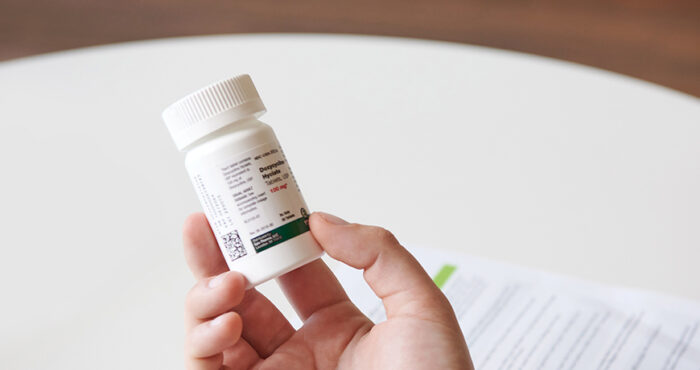ARTEMIS improves mood, reduces viral load for men using meth

New research shared at IAS 2019 showed a surprising effect of a counseling intervention to boost positive affect on gay bisexual, and other men who have sex with men living with HIV who use meth. The five-session counseling intervention not only improved the mood and reduced substance use behaviors of men who participated—it also significantly reduced viral load.

“We tested the idea that therapeutic approaches that help people experience positive emotions would also help people better manage co-occurring stimulant use and HIV,” said Adam Carrico, PhD, from University of Miami. “This intervention helped people get a better handle on their substance use, and this in turn had durable and clinically meaningful benefits for people to become and stay undetectable.”
Methamphetamine use is on the rise nationwide, and rates are higher among men who have sex with men. For people living with HIV, stimulant use has been shown to negatively affect immune health and impede HIV treatment—affecting adherence to medications and preventing people from getting to undetectable.
In the study, a total of 110 HIV-positive men who have sex with men, who were enrolled in the PROP contingency management program at San Francisco AIDS Foundation, participated between 2013 and 2017. All had recent history of methamphetamine use, as confirmed by toxicology.
Participants were randomized to receive either the five-session positive affect intervention (called ARTEMIS), or a control condition. During the three-month study period, all participants took part in PROP sessions three times per week, which provided harm reduction support around meth use and incentives for stimulant abstinence.
The researchers measured participants’ viral loads over 15 months. Men who received the ARTEMIS sessions had significantly lower viral loads at six, 12 and 15 months compared to participants who received the control condition. Men receiving ARTEMIS also had significantly lower risk of having any unsuppressed viral load over 15 months.
ARTEMIS also improved positive affect, increased mindfulness, reduced meth cravings and reduced self-reported stimulant use.
Using mindfulness and meditation practices, the ARTEMIS counseling sessions helped participants find ways to experience pleasure and reward outside of drug use, said Carrico. ARTEMIS sessions focused on developing core skills such as gratitude, noticing positive events, attainable goals and acts of kindness.
“One of the major problems for people who struggle with substance use disorders is that things in life tend to lose their pleasure,” said Carrico. “The rewards that people get from things other than substances start to diminish. Mainstream substance use disorder treatment focuses on telling people things like, ‘Avoid this area,’ or, ‘Don’t do that.’ It’s really focused on taking things away. We wanted to help people add things to their lives, to make their lives more full, so the substance use becomes less dominant.”
“In some ways, it’s not a surprise that people living with HIV who received the intervention had reductions in their viral load,” said Mike Discepola, MA, senior director of behavioral health services and The Stonewall Project at San Francisco AIDS Foundation. “We know that when people’s lives are less chaotic, when they are feeling better, and when they have community support their health improves. But sometimes it’s hard for us to link the immediate benefits, such as improving positive affect, with medium-term and longer-term benefits like viral load reduction. This research is stunning from that perspective.”
People who participated in the study joined from PROP, a contingency management program for people who use stimulants at San Francisco AIDS Foundation. PROP’s approach welcomes people at any level of readiness to change, and people who are not abstinent or do not have plans to quit drug use altogether.
“The goals and objectives of this study lined up really well with the goals and objectives of PROP,” said Discepola. “Both try to find a place to embrace people who have challenges with substance use in ways that are outside of traditional drug treatment models—which don’t embrace some where they are with their drug use and goals. We’re interested in ways to enhance the contingency management model because we are always growing and changing, and we want to look at offering benefits to our participants in new ways.”
“People who use methamphetamines take longer to become virally suppressed, and are more likely to engage in sexual risk behaviors,” said Carrico. “A lot of this work is really nested in that double benefit of treatment as prevention—we want to help people who use stimulants optimize their own health, and also prevent HIV transmission to sex partners by helping people stay undetectable.”
Carrico said that in collaboration with Keith Horvath at San Diego State University and Sabina Hirschfield at SUNY Downstate Health Sciences University, he’s working on integrating the positive affect intervention and a medication adherence tool into an application that people may use on their phones. To test this approach, the START Trial will enroll gay, bi and other men who have sex with men with the goal of making this approach scalable to a larger population.
Source:
Carrico, A. W. and colleagues. Randomized controlled trial of a positive affect intervention to reduce HIV viral load among methamphetamine-using sexual minority men. IAS 2019, Abstract 4700.










